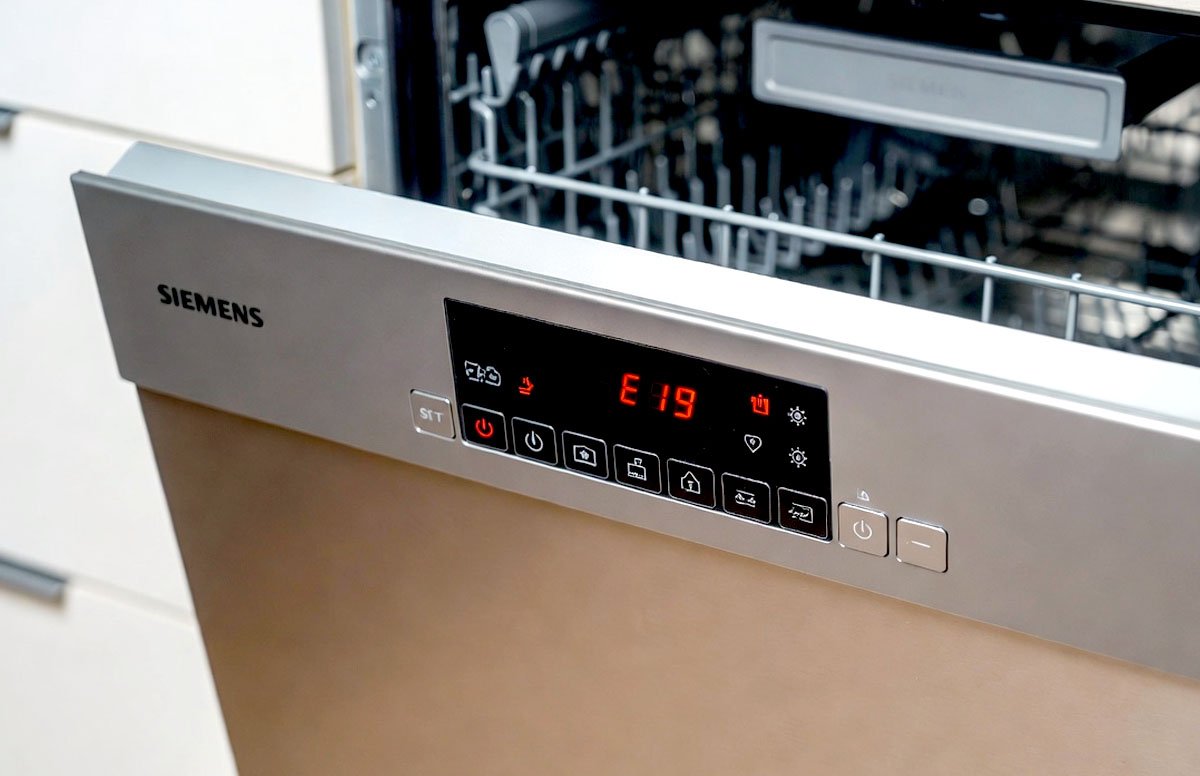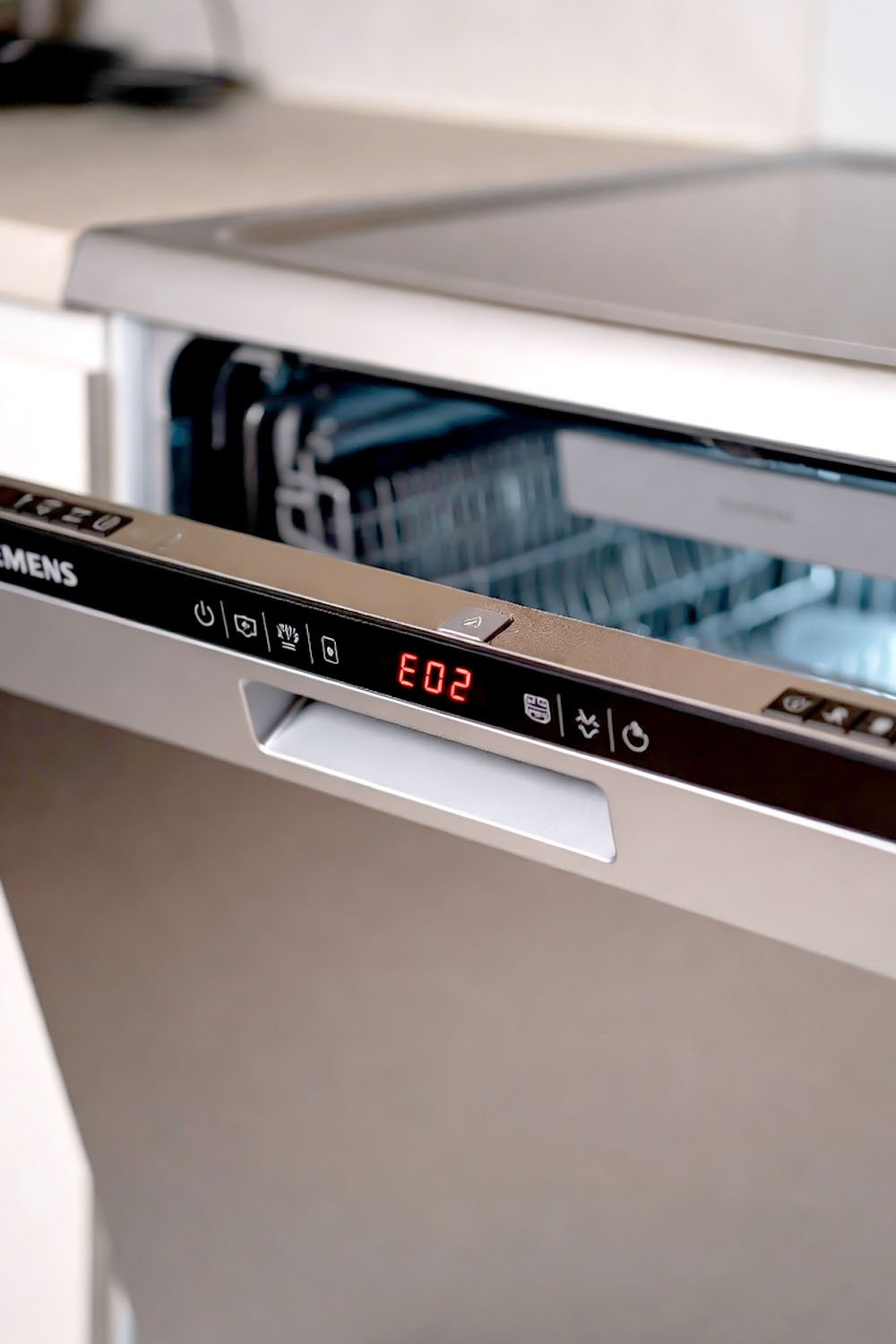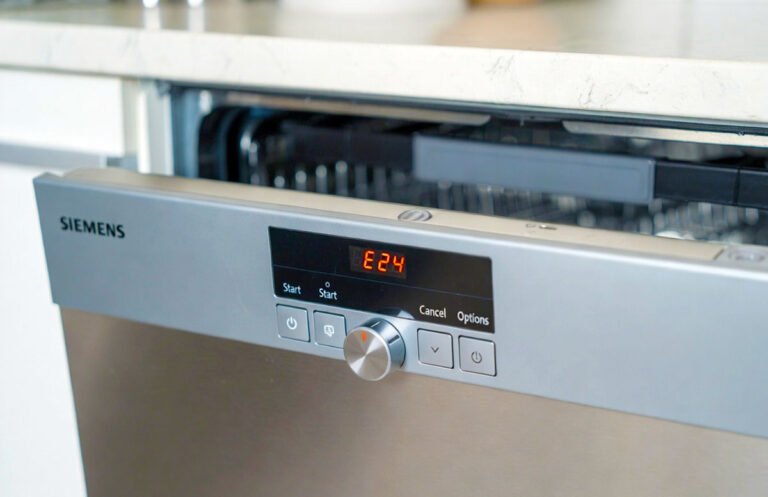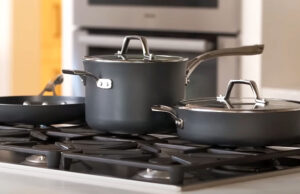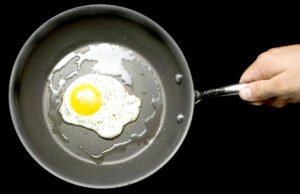As an Amazon Associate, I earn from qualifying purchases at no extra cost to you.
Bosch Dishwasher Auto vs Normal Cycle: Which One to Use
You might be wondering which option is better on your Bosch dishwasher — Auto or Normal cycle. You are not alone! I had the same question when I first used my Bosch dishwasher, and I know how confusing it can be. The Auto cycle sounds smart, but the Normal cycle feels safe. So, what is the real difference? The exact answer is: the Auto cycle uses sensors to adjust everything, while the Normal cycle follows fixed settings. In this article, I will explain clearly which one is better and why, based on real experience and facts.
Understanding What the Auto Cycle Does in Bosch Dishwasher
The Auto cycle on a Bosch dishwasher is made to be smart and automatic. It uses special sensors inside the machine that can check how dirty the dishes are. This means you do not have to guess how much time or water is needed. The dishwasher decides that for you.
When you press the Auto button, the dishwasher starts to scan the water that flows off your dishes. It checks for food, grease, and how cloudy the water is. If the water is very dirty, it washes the dishes longer and uses more hot water. If the dishes are not too dirty, it finishes faster and saves energy.
This cycle usually runs between 95°F and 135°F, depending on what it finds. It also uses water between 3 and 6 gallons, adjusting as needed. One big benefit is that you can put all types of dishes in one load — very dirty pots, lightly used cups, and even fragile items — and the machine takes care of everything.
Another great thing is that the Auto cycle can be helpful if you are not sure how dirty the dishes are. It works well for mixed loads, like when you have guests over and there are all kinds of plates and glasses to clean.
Many people love this cycle because it takes away the guesswork. You do not have to worry about over-washing or under-washing. It saves water and power over time, especially if your dishes are not always very dirty.
However, one thing to keep in mind is that it may take longer than the Normal cycle, depending on the load. Some cycles can run up to 2.5 hours or more if needed. But because it is using less water and energy when it can, it makes up for the time.
- Uses smart sensors to decide wash time and water.
- Good for mixed and unsure loads.
- Adjusts temperature and time automatically.
- Can take longer but saves water and energy.
- Great choice if you want convenience and savings.
What Happens in the Normal Cycle of a Bosch Dishwasher
The Normal cycle on a Bosch dishwasher is the most basic and common setting. Many people use it every day. It follows a fixed plan and does not change, no matter how dirty or clean your dishes are. That means it runs the same time, same water amount, and same heat level each time.
This cycle usually heats the water to around 120°F to 140°F and uses about 2.5 to 5 gallons of water. The wash time can be around 1.5 to 2 hours, depending on the model and how long it takes to heat the water.
It is designed for dishes that are not super dirty — like after a regular family dinner. If you scrape off big food pieces and load it right, the Normal cycle does a good job. It is faster than the Auto cycle most of the time, and you know exactly how long it will take.
But it does not check how clean the dishes are while washing. So, if you put in a mix of very dirty and lightly dirty dishes, you might not get perfect results. Very greasy pans or sticky food leftovers might still have bits left after the wash.
Also, if the dishes are already pretty clean, the Normal cycle still uses full water and energy. So it is not always the most eco-friendly. It is more like a safe middle option — not too much, not too little.
One benefit is that it is simple. You just load the dishes, press Normal, and go. There is no waiting for sensors to adjust. You always know what to expect.
- Runs with fixed settings, no matter how dirty dishes are.
- Good for average loads, like dinner plates and utensils.
- Quicker than Auto cycle most of the time.
- Does not adjust for energy or water savings.
- Safe choice when you want fast and steady results.
How to Know Which Cycle is Better for Your Daily Use
Choosing between Auto and Normal depends on how you use your dishwasher. Some homes have dishes that are very greasy or sticky, especially if you cook often with oils, sauces, or cheese. Other times, you may just have light loads like coffee cups or snack plates.
If your dishes are different every day, and you do not want to think much about which cycle to use, then Auto is the best. It checks everything and picks the right settings. This can help save water and electricity too, which is good for your monthly bills.
But if you have a set routine, like always washing plates from the same kind of meal, the Normal cycle may be enough. It is quicker, and you already know what it does. It also saves time if you are in a hurry and need clean dishes fast.
Think also about your family. If you have kids and use plastic or colorful cups and bowls, the Auto cycle can adjust to protect them better. If you only use ceramic or glass, the Normal cycle is usually fine.
Another tip is to notice how full your dishwasher is. A full load with mixed dirt is best for Auto. A smaller load or average meal dishes is okay for Normal.
- Auto is better for mixed dishes and when unsure about dirt.
- Normal is better for fast, everyday cleaning.
- Auto saves energy by adjusting settings.
- Normal gives you a fixed time, easier to plan.
- Use Auto when guests come over and dishes vary.
- Use Normal on calm days with regular meals.
What About Energy and Water Usage Differences
One of the biggest things people ask is which cycle saves more energy and water. The answer is not simple, but here is what you should know.
The Auto cycle saves more in the long run. That is because it changes how much water and heat it uses depending on how dirty the dishes are. On a day when your dishes are not very dirty, it uses very little water and runs shorter.
But if you run the Auto cycle every day, even on heavy dirt, it can sometimes use just as much water and power as the Normal cycle — or even more if it finds dishes very dirty.
The Normal cycle always uses the same amount. That means you might waste water and heat when dishes are already pretty clean. But you always get a predictable run.
So, if you care about being green and saving resources, the Auto cycle gives you that smart edge. If you care more about knowing how long the cycle takes and getting steady results, then Normal is okay.
Bosch dishwashers are made to be energy-saving in general. Both cycles are better than hand washing when used full.
- Auto saves more energy and water over time.
- Normal uses fixed water and power each time.
- Auto changes settings to match dirt level.
- Normal can waste energy on lightly dirty dishes.
- Both are better than hand washing when full.
When to Choose Auto or Normal Based on Load Types
Your load type matters a lot when picking a cycle. Think about what you put in the dishwasher.
If your load has:
- Greasy pots and pans
- Leftover sauces or cheese
- Baked dishes with stuck food
- A mix of cups, bowls, and big plates
Then go with Auto. It will wash harder and use hotter water if needed.
If your load has:
- Breakfast plates with toast crumbs
- Coffee mugs and juice glasses
- Salad bowls and spoons
- Light dirt with no sticky mess
Then Normal is fine. You will get clean dishes quickly without extra washing.
Also, if you run the dishwasher once a day and it is full, Auto is better. If you run it more than once a day with small loads, Normal saves time.
Auto is also safer for fancy dishes. Bosch dishwashers adjust water pressure, so delicate glasses are not damaged. The Normal cycle might be too rough in some cases.
Here are quick points:
- Auto for heavy, mixed, or full loads.
- Normal for light, simple, or small loads.
- Auto for protecting delicate items.
- Normal when you need dishes done fast.
- Auto great for party or event cleanup.
- Normal fine for everyday meals.
Real Experience Using Both Cycles for Weeks
I used both cycles every day for two weeks. I paid attention to what went in, how long it took, and how clean the dishes came out. I wanted to see what really works, not just what the manual says.
When I used Auto, the dishwasher took longer — around 2.5 hours most of the time. But I noticed the dishes always came out sparkling clean. Even the greasy ones with sauce dried on them were spotless. It also dried better.
When I used Normal, it was quicker — usually around 1.5 hours. It did well with regular meals, but sometimes, it left behind a little food on bigger plates or pans. I had to pre-rinse a few times.
Auto made me feel more relaxed. I did not worry if I loaded the dishes wrong or mixed items. It handled everything. Normal was okay, but I had to be careful with how I loaded.
In the end, I started using Auto for dinner loads and heavy dishes, and Normal for breakfast or lunch loads. That balance worked great.
- Auto gives better results with less thinking.
- Normal is faster but needs careful loading.
- Auto works great for big family meals.
- Normal is okay for light daily loads.
- Mixing both gives best results.
Final Thoughts
Both Auto and Normal cycles on a Bosch dishwasher have strong points. Auto is smarter and more flexible, while Normal is quick and steady. Your best choice depends on your lifestyle, type of dishes, and how much time you have. Use Auto when dishes are very dirty or mixed. Use Normal when dishes are light or time is short. After using both for weeks, I found that using Auto for big meals and Normal for quick cleanups was the perfect combo. Try both and see what works best for you.
| Feature | Auto Cycle | Normal Cycle |
|---|---|---|
| Time | 1.5 to 2.5 hours (varies) | 1 to 2 hours (fixed) |
| Water Usage | 3 to 6 gallons (adjusts) | 2.5 to 5 gallons (fixed) |
| Temperature | 95°F to 135°F | 120°F to 140°F |
| Sensor Control | Yes (adjusts everything) | No |
| Best for | Mixed and heavy loads | Regular daily loads |
| Energy Efficient | More over time | Less if dishes are clean |
| Load Flexibility | High | Medium |
| Glassware Safety | High (auto pressure control) | Medium |
| User Effort Needed | Very Low | Medium |
| Cycle Time Predictable | No | Yes |
| Ideal Use | Uncertain or varied loads | Steady routine loads |
Frequently Asked Questions (FAQs)
Is it safe to use Auto cycle every day?
Yes, it is safe to use the Auto cycle daily. The Bosch dishwasher is made to adjust the settings every time it runs, so it never uses more heat or pressure than needed. It senses the dirt level and works just enough to clean well. That means it protects your dishes and saves water and energy. Many people use Auto every day without any problem. Just make sure you do not overload the dishwasher, so the sensors can work properly.
Can I use the Normal cycle for heavy dirty dishes?
You can, but it might not clean as well. The Normal cycle uses the same settings every time, so it does not change based on how dirty the dishes are. If there is stuck-on food or greasy pans, the Normal cycle might leave some dirt behind. In that case, Auto is better because it adjusts to clean harder. If you still want to use Normal, try rinsing or soaking dishes a bit before loading.
Do I need to pre-rinse before using Auto cycle?
No, you do not need to pre-rinse when using the Auto cycle. It is designed to handle dirty dishes, even with food still on them. The sensors need to see how dirty the water is, and if you rinse too much, the sensors will think the dishes are clean and give a light wash. Just scrape off big food chunks and let the machine do the rest. It works best this way and saves time and water too.
Is it true that Auto uses less water?
Yes, Auto can use less water than the Normal cycle. That is because it changes the water use based on the dirt level. If your dishes are not too dirty, the machine will run a shorter cycle and use less water. On very dirty loads, it may use more. But on average, Auto saves water across many loads compared to Normal, which always uses the same amount no matter what.
Can I switch between Auto and Normal on different days?
Yes, you can easily switch between cycles. Many people use Auto for heavy dinner loads or weekends and Normal for light weekday meals. Bosch dishwashers are made for flexible use. You will not damage anything by switching. Just match the cycle with the type of dishes and how dirty they are. Over time, you may find a routine that works best for you.
Do I get better drying with Auto or Normal?
In most cases, the Auto cycle gives better drying results. That is because it adjusts the temperature and run time to give a stronger final rinse with hotter water. This helps dry the dishes more. The Normal cycle dries okay too, but since it follows fixed rules, it may not give as strong a final rinse. Also, drying can depend on the rinse aid you use.
Is it okay to wash glassware in both cycles?
Yes, you can wash glassware in both Auto and Normal cycles. However, Auto is better if you have thin or delicate glasses. It adjusts the water pressure and heat, so it is safer for breakable items. The Normal cycle is fine too, but it might use higher pressure that can be rough on thin glass. If you want to be extra careful, go with Auto.
Can I save electricity by using Normal?
Sometimes, yes. If your dishes are always lightly dirty and you run small loads, the Normal cycle may use less energy than Auto. But if the Auto cycle detects the same light dirt, it will also use little energy. So the savings are small. In general, the Auto cycle is better for long-term savings because it only uses what it needs each time.

